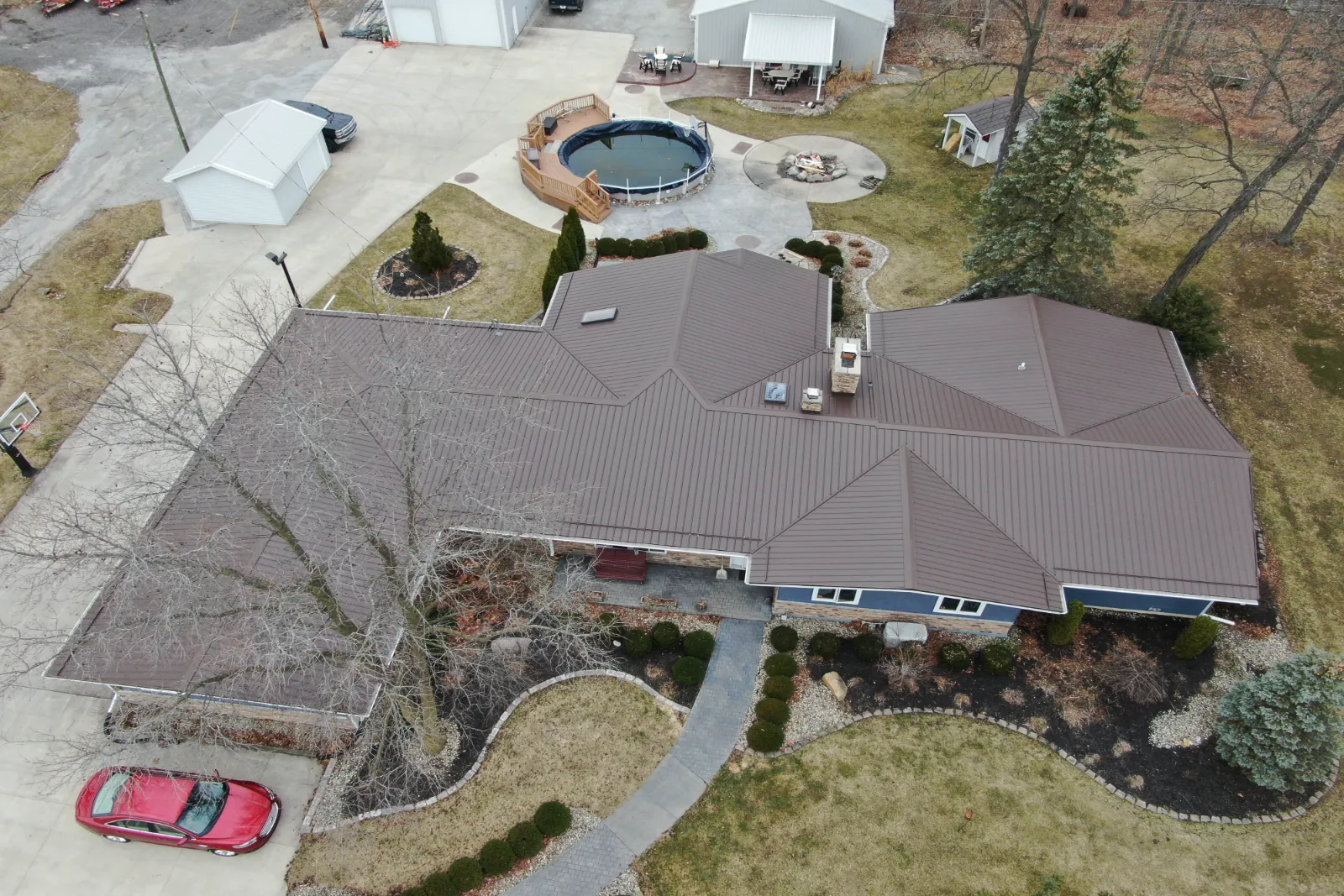Metal roofing has emerged as a leading choice for homeowners and businesses alike, offering durability, aesthetics, and energy efficiency. In this guide, we delve deep into the various types of metal roofing materials, their advantages, and considerations to help you make an informed decision.
1. Copper Roofing: The Timeless Classic
Advantages:
-
Longevity: Copper roofs can last well over 200 years in ideal conditions.
-
Eco-friendly: They are 100% recyclable, aligning with green building practices.
-
Sound Insulation: Being a soft metal, copper is among the quietest metal roofing options.
Considerations:
-
Cost: Copper is a premium material and comes with a higher price tag.
-
Expansion & Contraction: Temperature fluctuations can cause copper to expand and contract, which needs to be factored in during installation.
2. Aluminum Roofing: The Coastal Champion
Advantages:
-
Corrosion Resistance: Especially in salty, coastal regions, aluminum stands out for its resistance to saltwater corrosion.
-
Lightweight: Aluminum roofs are light, reducing the load on the building structure.
-
Self-Protecting: The outer layer of aluminum reacts with atmospheric oxygen, forming a protective oxide layer.
Considerations:
-
Cost Fluctuations: Aluminum prices can vary based on market conditions.
-
Thickness: Due to cost considerations, aluminum panels might be thinner and less durable in certain conditions.
3. Zinc Roofing: The Green Marvel
Advantages:
-
Self-Healing: Scratches on zinc can heal over time due to its patina.
-
Eco-friendly: Zinc requires less energy during processing and is 100% recyclable.
-
Malleability: Ideal for commercial projects due to its ease of shaping.
Considerations:
-
Aesthetics: Over time, zinc develops a chalky residue which some might find unattractive.
-
Cost: Zinc is on the pricier side, comparable to copper.
4. Steel Roofing: The Versatile Workhorse
Advantages:
-
Affordability: Steel is often the most cost-effective option.
-
Recyclability: Steel is the most recycled material globally.
-
Variety: Comes in forms like galvanized, galvalume, and weathering steel, offering choices for different needs.
Considerations:
-
Corrosion: While galvanized and galvalume steel offer protection, they can be susceptible to corrosion in certain conditions.
5. Tin Roofing: The Historical Mention
Historically, “tin roofing” referred to roofs made from tin sheets. However, modern “tin roofs” are typically made from galvanized steel or aluminum. It’s essential to clarify the material in use when discussing “tin roofing.”
Making the Right Choice with 4Ever Metal Roofing
At 4Ever Metal Roofing, we understand the nuances of each material and offer top-tier metal roofing services in Carmel IN. Whether you’re looking for commercial metal roofing in Carmel IN or need expert advice on the best metal roof installers in Carmel IN, our team is here to guide you. Remember, the right material combined with expert installation ensures your roof stands the test of time.
Conclusion
Each metal roofing material offers unique advantages, and the best choice often depends on your specific needs, budget, and location. By understanding the properties of each material, you can make an informed decision that ensures longevity, aesthetics, and value for your property.

